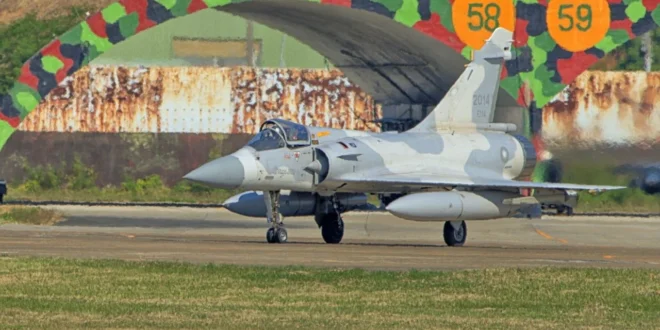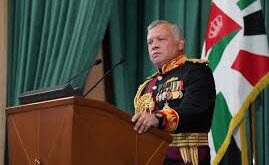Without firing a shot, China is already waging war against Taiwan, and it is winning.
Consternation grows that China will invade Taiwan. Numerous war games predict horrific outcomes. An invasion would be swift and sharp. As the United States did in the first Gulf War, China would likely knock out Taiwanese radar and air/sea defense capabilities first, followed by drops of airborne troops, including the seizure of airfields and ports. An amphibious assault would follow. The possibility of targeted special operations and cyber actions by embedded PLA assets in Taiwan could also not be discounted. Finally, an EMP attack might happen, shutting down communications and air defense batteries.
Despite this, while many consider a Chinese invasion to be inevitable if not imminent, Taiwan is sending a different, less convincing message—evidenced by the fact that it spends less as a percentage of GDP on its defense than the United States (2.6 percent compared to 3 percent). On top of that, Taiwan does not have a strong draft. During the second decade of this century, even as tensions with China grew, Taiwan reduced the term for compulsory conscription from two years to one and then from one year to only four months in 2017. Only since January 2024 has Taipei increased the term again to one year, but that level of commitment still pales when one considers that during the Cold War, the United States, facing no immediate threat of invasion by anyone, maintained a two-year draft. These facts raise the question of whether Taiwan is serious about resisting a Chinese invasion or even if it takes such threats seriously.
Taiwan’s politicians likely realize better than Washington that Taiwanese voters may not be as inclined to make the kind of heavy sacrifices that are necessary to defend their freedom as the Ukrainians, Israelis, Finns, or Swiss. The reality is that Taiwanese public opinion on China largely supports the current status quo, which Beijing also tolerates so long as there is no talk of independence. This state of affairs is consistent with the original framework set out by the United States and China in the 1972 Shanghai Communique. The United States acknowledged that “there is but one China and that Taiwan is part of China.” Washington reaffirmed its commitment to the “peaceful settlement of the Taiwan question by the Chinese themselves.”
Without firing a shot, China is already waging war against Taiwan, and it is winning. Beijing’s present strategy is primarily focused on economic absorption, intimidation, and influence. Their aim is to conquer Taiwan by quiet integration into the Chinese economy while warding off, with military threats if necessary, any Taiwanese political momentum toward a declaration of independence. China is Taiwan’s largest trading partner. The Chinese in Taiwan (but not the indigenous population) share a common language and past with mainland Chinese. Hence, the primary attack strategy will continue to be in the information warfare and trade warfighting domains, where China already excels. Even the term “reunification,” as used by Beijing, should be viewed as just another facet of its misinformation tactics. Historically, Taiwan has never been an integrated part of China.
Beijing also takes maximum advantage of its sway as the world’s largest manufacturing partner to influence other countries not to stand in the way of its Taiwan ambitions. The relationship between Taiwan and the United States ironically provides Beijing an additional, convenient excuse for all manner of intimidation tactics, such as the practice drills it conducted offshore Taiwan that were prompted by a visit to Taipei by former House Speaker Pelosi. China’s varied information war tactics are aimed at ineluctably grinding down resistance to unification, eliminating the need for a real military invasion.
Taipei, with support from Washington, should fashion an effective information warfare campaign as an immediate necessity, in addition to a heightened arms buildup. Beijing must be made to understand that a bloody attack would create unacceptable diplomatic and economic consequences, seriously compromising its domestic economy and raising internal dissent while simultaneously destroying its global standing and trade relations. If Hamas can pull off success over Israel, then Taiwan should be capable of developing an equally effective digital war strategy for itself.
China, unfortunately, has already proven itself quite adept at winning that type of war so far. Nowhere has the product of its successful approach been better demonstrated than in the United Nations. Beijing marshals regular support for its policy on Taiwan in the UN General Assembly and UN agencies, skillfully out-maneuvering Washington and its Western allies. Beijing has successfully courted a voting coalition of countries that cooperate with it to deny Taiwan’s participation in various UN institutions.
If Taipei is to win its current war, then Washington and its allies must develop digital strategies that lay bare China’s imperialistic ambitions for outright annexation of Taiwan. If Taipei and Western friends do not, then the quote often attributed to Sun Tzu will have been proven correct: “If one party is at war with another, and the other party does not realize it is at war, the party who knows it is at war almost always has the advantage and usually wins.”

 Geostrategic Media Political Commentary, Analysis, Security, Defense
Geostrategic Media Political Commentary, Analysis, Security, Defense




